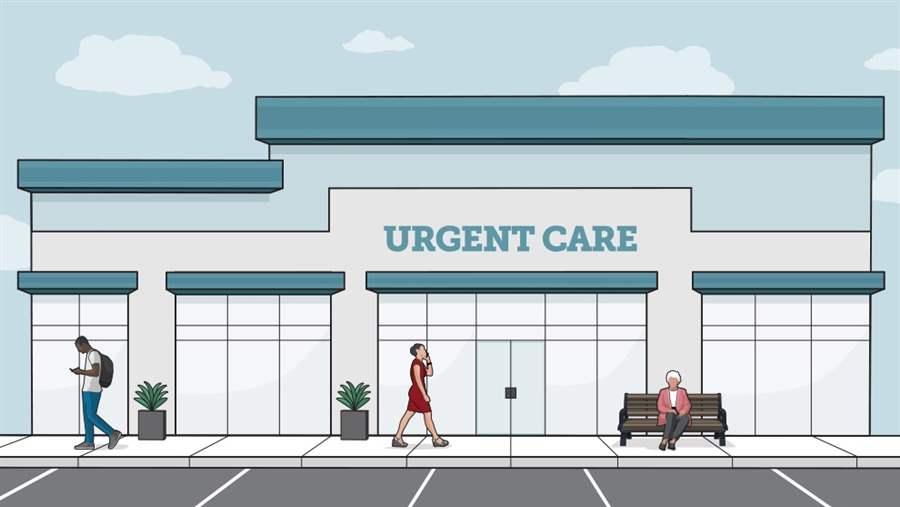Urgent Care vs. Primary Care: Which Is Right for Your Needs?
Recognizing the Relevance of Urgent Care Solutions for Non-Life-Threatening Medical Issues
The value of urgent care services for non-life-threatening medical problems can not be overstated, especially in today's medical care landscape. These centers use an important alternative for individuals seeking timely attention for conditions that require immediate care but do not require a check out to the emergency room. By comprehending the benefits of urgent care, such as reduced wait times and price effectiveness, one can better value their duty in patient health and wellness administration. Yet, the subtleties of just how to navigate these services effectively remain to be discovered, questioning regarding their optimal use.
What Is Urgent Treatment?
Immediate care refers to a group of medical services designed to resolve non-life-threatening conditions that require immediate focus however do not call for a check out to the emergency clinic. These centers supply a bridge between key treatment and emergency services, providing easily accessible medical care options for individuals experiencing acute clinical concerns, such as minor fractures, strains, infections, or severe illnesses that occur unexpectedly.

The extent of solutions offered by immediate care centers can differ however usually includes treatment for typical disorders like colds, influenza, and allergic reactions, as well as small injuries (urgent care). Furthermore, several immediate care facilities provide preventative solutions, such as inoculations and physical examinations, to address wider health requirements. By providing a hassle-free alternative for immediate clinical concerns, these facilities play an important function in the health care continuum, guaranteeing that clients get suitable treatment when they require it most
Benefits of Urgent Care Solutions
Many people find that using immediate treatment solutions offers significant advantages over traditional emergency area check outs or waiting for a key care consultation. Immediate care facilities usually have much shorter wait durations, allowing people to get prompt medical focus when they need it most.
One more benefit is the prolonged hours of procedure. Lots of immediate treatment centers are open nights and weekends, accommodating individuals that may not be able to see their health care physician throughout regular office hours. This flexibility makes it less complicated for people to access care at their comfort.
Additionally, urgent care services typically provide an economical choice to emergency clinic. When looking for therapy for minor disorders at immediate treatment centers rather than medical facility emergency situation divisions., patients often face lower co-pays and general expenditures - urgent care.
Last but not least, urgent care facilities are geared up to manage a range of non-life-threatening problems, giving a wide variety of services under one roofing. This extensive technique not just enhances the treatment process but also enhances patient complete satisfaction by supplying efficient and timely treatment.
Common Conditions Dealt With
What types of non-life-threatening problems can clients expect to obtain therapy for at urgent care? Immediate care facilities are geared up to deal with a broad array of usual clinical concerns that call for timely focus yet do not present an immediate danger to life. These centers generally deal with problems such as small fractures, strains, and stress, offering essential take care of injuries that take place during daily activities or sporting activities.
Furthermore, patients often seek treatment for breathing infections, consisting of colds, flu, and bronchitis, where prompt intervention can minimize signs and avoid issues. Skin conditions such as rashes, insect have a peek here bites, and minor burns are also commonly dealt with, as prompt care can reduce pain and reduce the threat of infection.

Contrasting Urgent Treatment and Emergency Clinic

One substantial difference waits times; urgent treatment facilities usually have shorter delay times compared to emergency spaces, which can be congested with even more crucial cases. This performance allows individuals to obtain prompt therapy for their ailments.
From a monetary point of view, urgent care gos to often tend to be less expensive than emergency clinic visits. Insurance copays and out-of-pocket costs are usually reduced at urgent care facilities, making them an extra affordable choice for non-emergency circumstances.
How to Pick an Urgent Care Facility
Picking the ideal urgent treatment center can considerably improve the quality of treatment gotten during a non-life-threatening clinical issue. When choosing an immediate care facility, a number of essential factors should be thought about.
First, analyze the facility's accreditation and licensing. Some urgent treatment centers specialize in certain areas, while others supply extensive care for numerous medical issues.
Additionally, think about the area and hours of operation. A conveniently located center with extended hours can be vital for timely care. It's additionally recommended to check the center's delay times and client evaluations, which can offer understandings right into the total patient experience.
Final Thought
To conclude, urgent treatment solutions play an important duty in addressing non-life-threatening clinical concerns effectively. By providing prompt interest for numerous problems, these facilities enhance client accessibility to prompt treatment while minimizing the stress on emergency clinic. The advantages of urgent care, including prolonged hours and lower expenses, make them a positive alternative for people looking for timely therapy. Eventually, recognizing the significance of urgent treatment facilities contributes to improved healthcare management and individual fulfillment.
Many individuals locate that utilizing urgent care solutions offers significant benefits over standard emergency situation space gos to or waiting for a main care appointment. Many immediate care centers are open nights and weekend visit their website breaks, accommodating people who might not be able to see their primary care doctor during regular office hours. Immediate care centers are created to investigate this site resolve non-life-threatening conditions, such as small cracks, infections, and diseases, using a convenient alternative to emergency areas for those in need of immediate treatment. Some immediate treatment facilities specialize in details locations, while others offer detailed treatment for various clinical concerns.